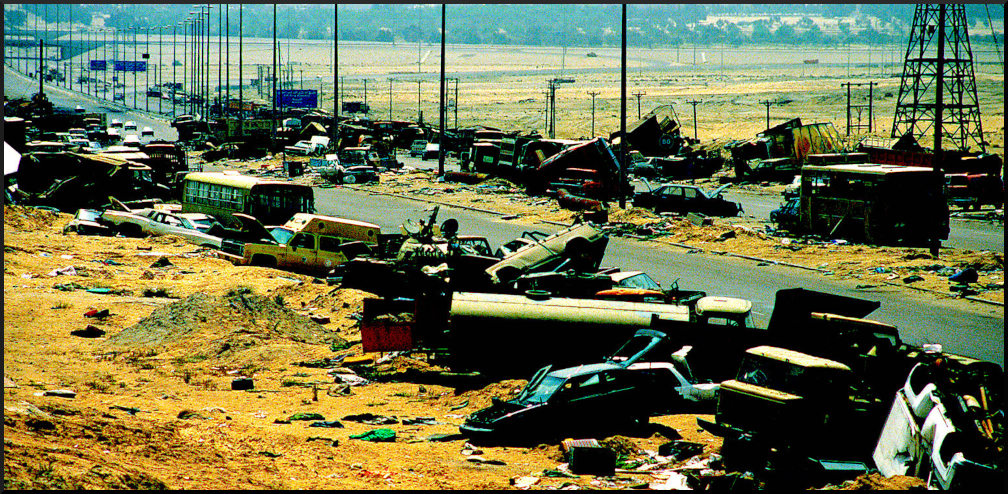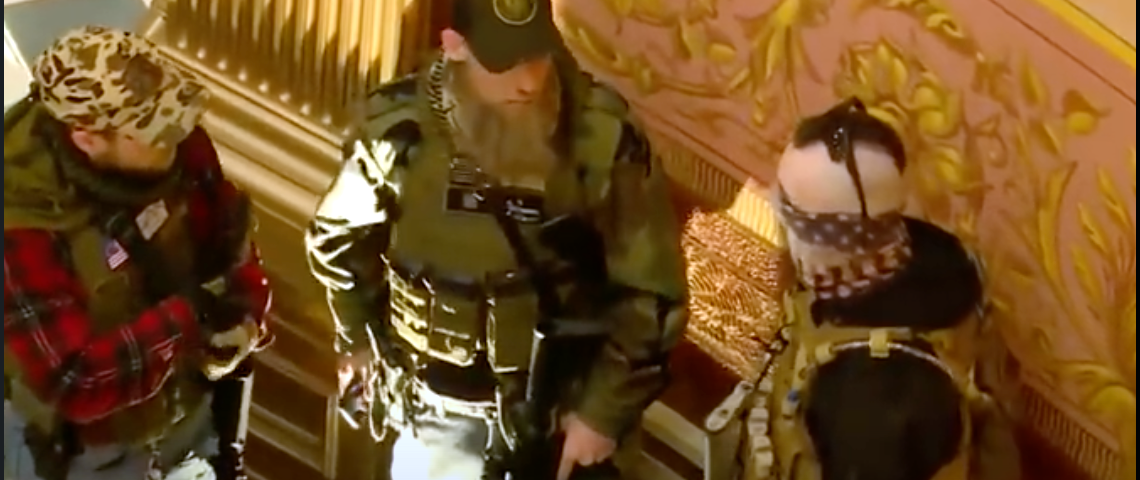by Colleen Rowley, published on Consortium News, July 8, 2021
It’s been six months since the Jan. 6 insurrection. But long before the public saw that mob scene in the Capitol, it was easy to predict that the upcoming inauguration would, unfortunately, take place amid extreme electoral polarization and civil unrest. Ordinary Americans had been turned against each other, radicalizing some while leading to unprecedented firearm sales and significant spikes in deadly shootings and violence in U.S. cities.
Such discord was regularly punctuated — and/or provoked — by (equally panic-stricken) police wrongfully killing or using excessive force on citizens. Even if we managed to avoid outright civil war, it was likely we’d witness acts of domestic terrorism.
While the Democratic side of the country (and its mainstream media) still focus almost solely on white supremacy as the cause, and we’ve been told for years to blame Russian Facebook posts for “sowing discord,” it’s high time to also consider whether our perpetual wars abroad have finally and fully boomeranged back home.
The facts about such blowback from our decades-long cultivation of militarism speak for themselves. In a 2016 New York Times piece, an anthropology professor at George Washington University found that:
“…military veterans account for a disproportionate number of mass shooters. Veterans account for 13 percent of the adult population, but more than a third of the adult perpetrators of the 43 worst mass killings since 1984 had been in the United States military. It is clear that, in the etiology of mass killings, military service is an important risk factor.”
It may not be politically correct to also recall that Timothy McVeigh and John Muhammad both served as highly decorated Army sergeants in the first Gulf War. The former bombed the Oklahoma City Federal Building in 1995, killing 168 men, women and children and injuring more than 680 others — the largest act of “domestic terrorism” ever committed.
The latter, better known as the “D.C. Sniper,” killed 10 random people (and wounded many others) in 2002 around the Washington, D.C., area. But many have long connected the dots.
Speaking of his experience in Kuwait in an interview before his execution, McVeigh said he’d decapitated an Iraqi soldier with a blast from his armored vehicle’s 25mm cannon, then celebrated.

‘Highway of Death’
His barracks roommate remembered McVeigh snapping many photographs of dead Iraqis during the war. The future domestic bomber claimed he’d been ordered to execute surrendering prisoners, and was shocked by the sight of carnage on the Iraqi Army’s retreat route out of the Kuwait — infamously dubbed the “Highway of Death” after U.S. air strikes devastated clogged convoys of fleeing enemy vehicles and soldiers.
More contemporary examples include Afghan War veteran Micah Xavier Johnson, who, in the deadliest single incident for U.S. law enforcement since the September 2001 attacks, ambushed and shot dead five police officers in Dallas in 2016, injuring nine others, as well as two civilians.
In the summer of 2020, Air Force police officer Steven Carillo was charged with the shooting deaths of a sheriff’s deputy and a federal security officer in Oakland, California. Additionally, former Marines were charged in separate plots to kidnap Michigan Governor Whitmer and to storm the Michigan Capitol and ignite a “civil war.”
Finally, a couple of days after Christmas 2020, a U.S. Army special forces sergeant was charged with gunning down six people in a random attack at an Illinois bowling-alley bar, killing three and blasting a 14-year-old boy in the face.
Sadly, this partial listing of war blowback just continues to grow ever longer. In November of this year, prosecutors charged a group of neo-Nazi, ex- and current Marines who wanted to create a “modern-day SS” with conspiracy to smuggle guns.
Most recently, numerous former military officers and veterans have been charged with crimes involving the Capitol takeover. The FBI even had to try to quickly vet National Guard members assigned to the presidential inauguration. Such incidents are finally setting off alarm bells within the Department of Defense.
Yet instead of recognizing the inherent problem of our war culture and military indoctrination techniques designed to create killers, the DOD report points only to the influence of domestic extremist and hate groups.
‘Bring ’em Home’
There’s only so much psychologists and other experts can do after a person has been put into the stress of kill or be killed. To return to civilian life after that and have people who haven’t a clue, who don’t care a bit, give them the false “thank you for your service” is a kind of damage that transcends PTSD and “moral injury.”
The all-volunteer military is in effect a mercenary force, very different from the Second World War and earlier wars which “drafted” men like my friend’s father, a small Minnesota town grocer who landed on Normandy and fought in the Battle of the Bulge. Military authorities found that most draftees didn’t ever, even try to shoot the enemy. The military revamped its “killology” training (and also spread it to police) to overcome such natural reluctance when they learned that most draftees never tried to kill someone else.
But as Pete Seeger sings in “Bring ’em Home”, you’d find him (even the peaceniks) out on the front line if an enemy “invaded this land of mine.” But recruiting and making militarist killers kill people in foreign countries is something else.
The U.S. long ago gravitated to professional mercenary forces to fight illegal wars of aggression as part of its “glorious dream” establishing Pax America, or in other words, world domination
Deeper Blowback
The blowback from nearly 20 years of “wars of choice” goes even deeper than such sordid tallies of direct veteran-perpetrated, domestic violence. An entire generation of young kids, mostly boys – like the Newtown, Conn., elementary school shooter — grew up playing “Call of Duty” first-person-shooter-style video games, which tend to desensitize them and teach them violence.
The dark irony is that the U.S. military capitalized on this violent “gaming” culture to facilitate recruitment for America’s “all volunteer” force.
Furthermore, Hollywood’s glamorization of war, nonstop media praise lavished upon “American Sniper” type heroes, plus “flyovers” and other ostentatious nationalistic sporting event spectacles exert a powerful force not only filling the ranks of uniformed recruits, but also triggering “wannabe warriors” to snap or to flock to paramilitary militias.
Lionizing foreign and domestic wars contributed to the development and popularity of “warrior training” for police officers. Officers who reveled in driving their military-surplus tanks around town or who traveled to Israel to learn how the IDF handles domestic (Palestinian) “terrorism,” naturally came to equate their workplaces to war zones, and those they serve to foreign “enemies.”
Police thus gravitated to more use of excessive force and looser “law of war” standards for applying deadly force, which is almost always justified as “collateral damage” due to the “fog of war.” There’s just one problem: the “killology” often tolerated in war is not allowed under the Constitution.
This author warned just days before America’s 2003 invasion of Iraq, in a piece published in The New York Times, that this very thing would transpire.
Although shocked news reporters will invariably claim that bewildered authorities are “seeking a motive” for the next horrible, senseless outbreaks of domestic killing, the terrible internal cost of our forever wars should by now be glaringly obvious to everyone.
*Featured Image: Armed protesters, angry at the Covid-19 lockdown, in Michigan state capitol on May 1, 2020. (YouTube screenshot)
Coleen Rowley, a retired FBI special agent and division legal counsel whose May 2002 memo to then-FBI Director Robert Mueller exposed some of the FBI’s pre-9/11 failures, was named one of TIME magazine’s “Persons of the Year” in 2002. Her 2003 letter to Robert Mueller in opposition to launching the Iraq War is archived in full text on the NYT and her 2013 op-ed entitled “Questions for the FBI Nominee” was published on the day of James Comey’s confirmation hearing.

“Empire abroad entails tyranny at home” Hannah Arendt